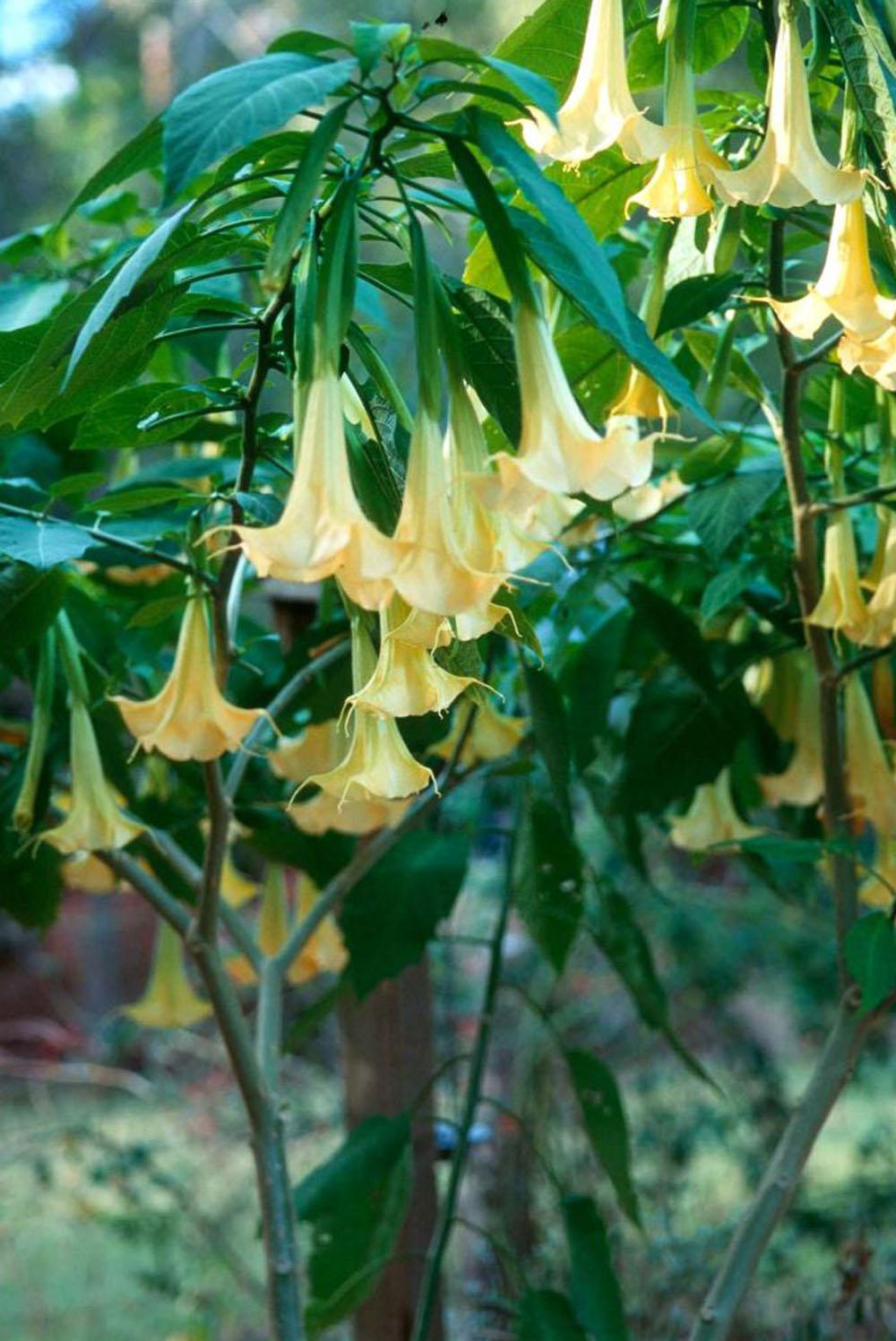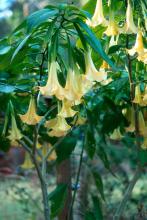Information Possibly Outdated
The information presented on this page was originally released on November 23, 2004. It may not be outdated, but please search our site for more current information. If you plan to quote or reference this information in a publication, please check with the Extension specialist or author before proceeding.
Angel's Trumpets enjoy banner year
By Norman Winter
MSU Horticulturist
Central Mississippi Research & Extension Center
The prolonged fall with no frosts has made this a banner year for Angel's Trumpets. It seemed those at the Truck Crops Experiment Station were a little behind others at first, but now I see these pre-holiday treasures everywhere.
The giant, trumpet-shaped flowers in apricot yellow, pink or white gracefully hang along branches in Mississippi landscapes as if waiting for Gabriel to choose one for an upcoming announcement.
The plants are known botanically as Brugmansia, but around here we just call them Angel's Trumpets. They come from Ecuador, but they couldn't look more at home in Mississippi. The most beautiful of Angel's Trumpets reach 12 to 18 inches in length and make a statement in the landscape. It is hard to believe these plants are related to tomatoes and peppers.
We often have a few early blooms, but they really strut their stuff in late summer and fall. This plant gets passed from friend to friend, but garden centers in Mississippi sell quite a few. Revel in its beauty, but remember the plant is poisonous when eaten.
To grow yours, choose a site in full to partial sun and plant in well-drained, organic-rich beds. If you wait until next year, don't plant until after the last frost and the soil has warmed. You may, however, stumble on some good opportunities now.
I normally say that protection from the wind and mid-afternoon sun make for a prettier plant, but there are plenty of terrific displays around that can make me eat those words. I recently saw a small tree in a large container that was loaded with blooms, demonstrating that you can enjoy this plant just about anywhere.
During a summer like we have been experiencing, supplemental water may be the most rigorous requirement. Angel's Trumpets only require feeding with light applications of a slow-released, balanced fertilizer about three times during the growing season.
In central Mississippi, they have had no problem returning from the winter, but an extremely rare, very hard freeze may be a different story. Prune in early spring after the last frost, cutting back to 6 or 8 inches above the ground. Plants will come back from the base with vigor.
In north Mississippi, plant in a protected micro-climate around the house, grow in a container and move indoors, or take cuttings in the fall to root. They root easily, and it is not hard to hold small plants over the winter.
At the Truck Crops Experiment Station, we are growing them with large bananas, which really adds a tropical appeal. In another bed, they are surrounded by Purple Heart, which looks exceptional with the apricot colors of the trumpets. Another great companion would be red coleus like Burgundy Sun, New Orleans Red or Plum Parfait.
At the risk of shocking you lovers of the Angel's Trumpet, I must say the varieties Grand Marnier, Charles Grimaldi and Frosty Pink are some selections that others have deemed better or at least worthy of adding to your collection. Finding these plants and others is what makes gardening in the South the most rewarding outdoor experience.
While awaiting the first freeze and doing Christmas shopping, enjoy the Angel's Trumpet as a holiday plant.



